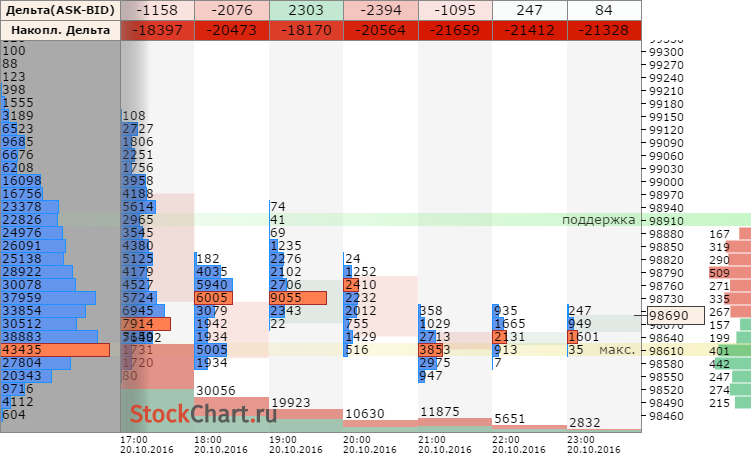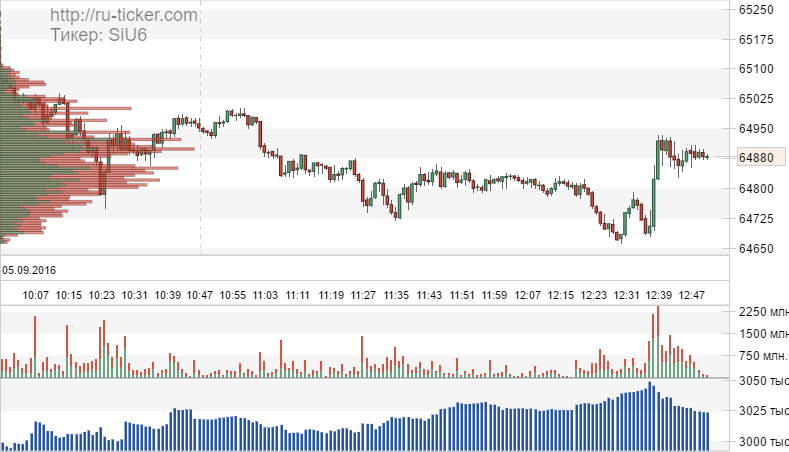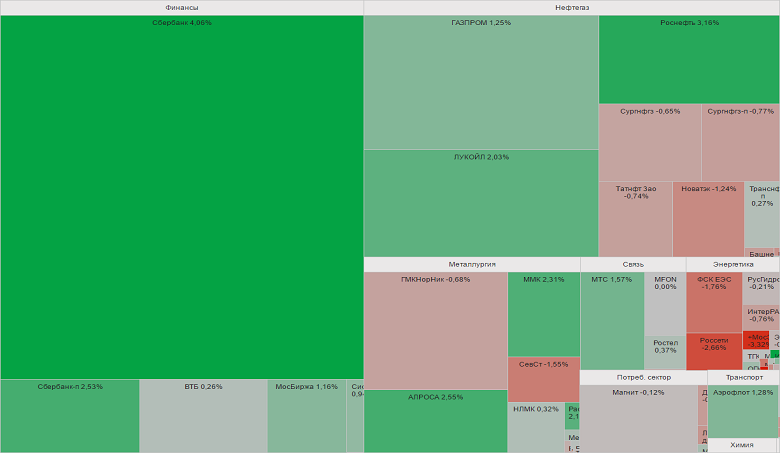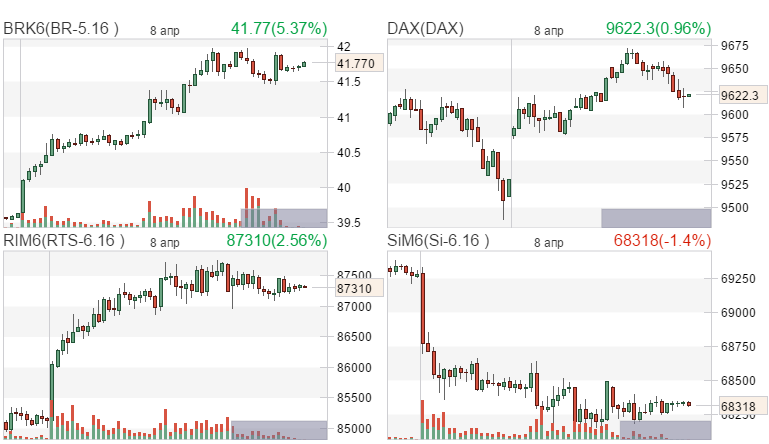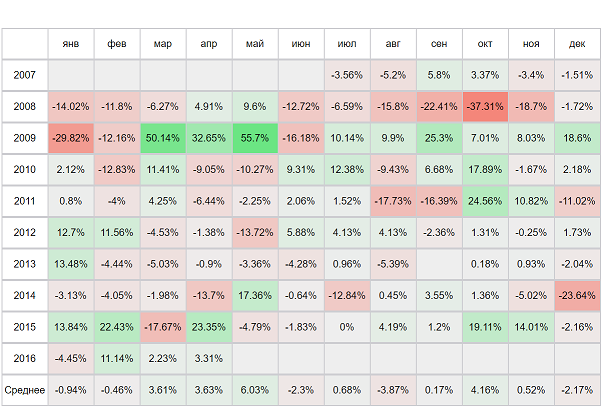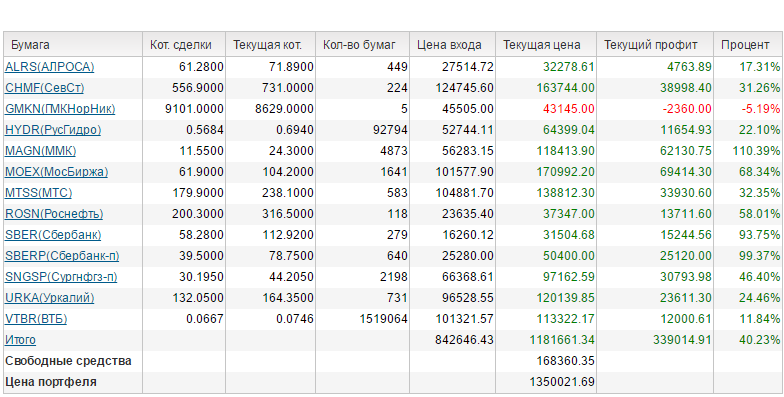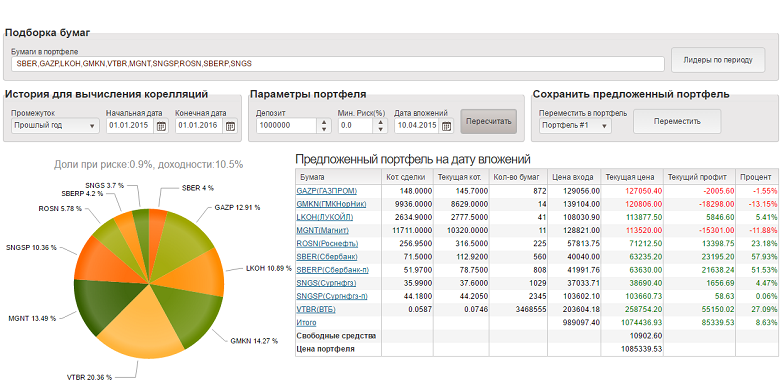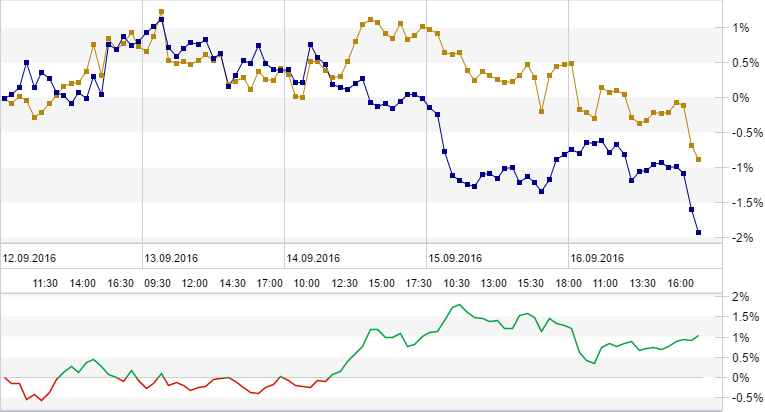 |  |  | |||||||||||
 |
|
||||||||||||
 |  |  | |||||||||||||||
 |
|
||||||||||||||||

Техническая поддержка
ONLINE
 |  |  | |||||||||||||||||
 |
|
||||||||||||||||||
The First Years of Russia: Shock, Cruelty, and Chaos
ruticker 07.03.2025 23:38:57 Recognized text from YouScriptor channel Step Back
Recognized from a YouTube video by YouScriptor.com, For more details, follow the link The First Years of Russia: Shock, Cruelty, and Chaos
You know, I don't think we really appreciate just how significant the collapse of the USSR was. It's been over 30 years now, and while the weight of the Cold War still looms heavy over modern geopolitics, the Soviet collapse happened when I was three and before many of you were even born. But it was a Titanic shift of global power. The USSR was a global superpower, one that stood against the hegemony of the United States. They had many nations across the world under their sphere of influence, and nearly every act of international politics had to at least consider them and their struggle with the U.S. in some way. Then, in what you'll see was a shockingly short time, it was just gone. The U.S. remained as the lone world superpower until relatively recently. Godzilla had no more kaijus left to fight, so they started looking for weapons of mass destruction in Iraq. The general narrative here in the American sphere of influence was that this was a time for celebration—capitalism and the nebulous idea of freedom. Some people celebrated this moment as the literal end of history. Yeah, I'm calling you out yet again, Francis Fukuyama—the most called-out person in recent memory. He figured out that bad takes are much easier for engagement all the way back in the 90s. Anyways, the "evil empire," as President Ronald Reagan called it, had fallen. That's not how many who had to live through that collapse really felt. Ask anybody from the former USSR, and you'll know that this period was tough. Many countries have never fully recovered, and many in Russia took the transition hard. They saw themselves as at the center of one of the world's two major powers, and in a few short years, they were now part of a weaker country struggling for survival. The desire to throw off the humiliation of such an event and return to that status held before is strong and at the core of more than one historical tragedy. Many Russians today have a feeling of nostalgia for the old Soviet Union days; others have just become Nazis, and others have become both. Like this guy—oh wait, that's Caleb Mopen. How about this one? Oh wait, that's just him posing with Caleb Mopen. I don't know why I can't find pictures of this Nazbo leader without Caleb Mopen. How do I delete something from a video? I don't understand; I'm not good with computers. I'm sure I don't need to tell you, Russia's been in the news a lot lately, and while war rages in the former Soviet Union, there seems to be a lack of understanding of why they're acting this way. So today, I want to tell you part of that story. I want to tell you how Russia weathered the collapse of the USSR and the steps that led to the invasion of Ukraine, which occurred earlier this year. Russia isn't some faceless evil; even Vladimir Putin isn't a mustache-twirling supervillain—first, no mustache. Of course, this is just a deep fake, but they all exist in a context. Monsters are made, and one of the best ways to find a path to peace is to try to understand the situation three-dimensionally. And also because I only understand social change through history lectures. Actually, that might be a good channel tagline: *Step back for those who only understand social change through history lectures.* So today, we're going to tell you the story of Russia—a young and old country with a wildly chaotic history. For a country that's basically a millennial, even if we don't sympathize with Russia and the actions they're doing right now, we can at least understand why they're doing what they're doing. But before we dive into the birth of modern Russia, we need to know what it grew out of. So let's talk about the Union of Soviet Socialist Republics, or USSR, or Soviet Union. The Soviet Union was the most ambitious project in the history of leftist politics. It was the first socialist state with a vague idea to someday establish communism—a world without states, without inequality, and importantly, direct worker control over the things that make the economy move. Now, you hear that ominous music playing? That's because it didn't work out quite as hoped. Ideals were not realities on the ground. The USSR suffered from major problems. By the 1980s, several authoritarian leaders led to a state bureaucracy chosen because of personal loyalties and politics rather than competency. The state-run planned economy worked wonders in turning a struggling agrarian empire into the first country to send a person to space and the one that defeated fascism. But that was over 30 years ago. By this point, the modern Soviet economy was rigid and slow to adapt. Furthermore, though the capitalist world poured everything they could into trying to snuff them out—specifically, the much richer United States and their allies and subjects—to keep up, the USSR had to dedicate a huge portion of their economic output into the military. That's important to know. The U.S. was by far the bigger aggressor in the Cold War, and oftentimes the Soviets felt like they were holding down their ideals against American attempts to undo their whole project. Mostly because they were not always, but more often than not. Lastly, the government was rather brutal in suppressing expression as well as cultural products from the capitalist world, which, like, I can kind of understand the logic of, but it does seem that banning anything from anyone is a surefire way to make them want it real bad. Soviet kids were making bootleg records on x-ray sheets and stuff like that. It actually reminds me about a fun weird side tangent about how there's like an illegal Cuban World of Warcraft private server. I don't have a clever joke to add to this, but like a potato, I just think it's neat. This stagnant and conservative—in the sense of resisting change—system then came under the leadership of a man named Mikhail Gorbachev. As his step back tradition, here's a clip of him doing a Pizza Hut commercial. He was a farmer who came up through the Soviet bureaucracy to power in 1985. Just like, um, Marty McFly, he called himself a socialist and said he was dedicated to the ideals of the Soviet Union, but also, like Marty McFly, he had political instincts closer to that of a social democrat—the ideological position that favors capitalism in free markets but with heavy government intervention to rein it in. So, you know, he's a centrist. His first actions were to recall the USSR from a war in Afghanistan as well as try to cool tensions with the Americans. He worked with then-President Ronald Reagan to reduce their stockpiles of new nuclear weapons, which is great because they do nothing for anyone except cost money and sit in a silo or Mar-A-Lago waiting to start the apocalypse. At home, Gorbachev had two major policy pillars he pursued to try and open up the USSR and make it a freer and more dynamic place. They were called *glasnost*, meaning openness, and *perestroika*, meaning restructuring. *Glasnost* was a project of trying to open Soviet society. Before this time, the state heavily censored various forms of media and art as well as forms of political speech, mostly out of fears of a capitalist cultural undermining of their society, which honestly, fair. A lot of American cultural products are basically pro-capitalist propaganda in one way or another. However, these programs resulted in weird things like taking a performance of a song that happens to be about a cowboy and requiring the lyrics of the performance banned at the last minute. As a result, you get, in Internet time, that meme is like paleontology. Now, isn't it? *Glasnost* in practice was key appointments to media organizations. This new management allowed for more disagreement and debate in political discourse, as well as rollbacks of censorship in the press. Efforts to block off radio signals from outside the Soviet block went down, and more open communication could happen from both sides of the Iron Curtain. How nice! *Perestroika* meant a restructuring of the country. The top-heavy, centralized method of planning the Soviet economy was replaced with a more distributed decision-making in hopes of becoming more efficient. The government became much more democratic and allowed for multi-party elections. In many ways, though, old Gorby's attempts to modernize the Soviet system led to it falling apart at the seams. This new freedom of speech and press was used to highlight the deep problems in the USSR, and freer elections caused nationalist and anti-communist groups to flourish. Many countries in the union hosted growing movements of people who wanted to get out and re-establish their independence. Communist-aligned countries not in the USSR but in the sort of Soviet sphere started to crumble, the most famous being in 1989 Germany, notably reunified. Unrest at home was only beginning. By 1990, the Soviet press openly called for Gorbachev to resign and feared a Russian Civil War between communists and a new liberal democratic league. At the same time, Soviet hardliners were calling on Gorbachev to shut down these criticisms and reassert control. His circle of allies had truly become tiny. In August of 1991, while on vacation in Crimea, a group of hardliners attempted to cancel culture of the Soviet government through a coup. They wanted to undermine Gorbachev's plan to restructure the USSR's constitution to something closer resembling the modern-day EU. The coup failed, but only due to support of liberalizers like Boris Yeltsin, who we'll get to in just a moment. Gorbachev pledged in the wake of the attempted coup to reform the Communist Party, which he did two days later by resigning as general secretary and calling for the dissolution of the Central Committee, essentially ending communist rule in the Soviet Union. Gorbachev then tried to renegotiate the Soviet Union's treaty while republics one by one voted to secede from the country. Even in Moscow, where Gorbachev worked, the tri-color Imperial Russian flag began to fly for the first time since the revolution. By the end of the year, Gorbachev's authority extended to maybe the building he worked in. On December 26th, Boxing Day of 1991, the Soviet flag went down over Moscow. The project was over—all his apes gone. Just a fun aside here: the USSR dissolved just late enough to get in on some of the early internet treaties, the most amusing being the top-level national domain, so there are still about one hundred thousand .su websites. Anyways, the dissolution meant that Russia was on its own. The first president of this new Russian Federation was a liberal nationalist leader by the name of Boris Yeltsin. The coup failed, but only due to support of liberalizers like Boris Yeltsin, who we'll get to in just a moment. See? I told you he'd be back. A liberal and a nationalist—what could go wrong? Russia's only really had three, but in reality, two presidents since 1991, and Yeltsin led Russia through its first tumultuous years. So we could learn a bit about him. Born in a small Russian village, Yeltsin worked in construction before going to university and joining the Communist Party, rising in the ranks. Yeltsin was a supporter of *perestroika* and embraced Gorbachev's reforms but quickly grew frustrated that they were too mild and too slow. In 1987, he famously resigned from the Soviet Politburo, the policy decision-making body at the top of the USSR. He called for multi-party democracy and became the face of people working to change the USSR forever. He worked with other nationalist leaders in different republics and eventually was instrumental to the dissolution of the Soviet Union in 1991. In an election earlier that year, he became the first President of Russia, chosen in a multi-party election. Russia contained over 50 percent of the former Soviet population. So what did ol' boyo, this specimen, do to move Russia out of this tumultuous era? Russia's transition to capitalism was a messy saga and really sets the tone for the country we know today. TL;DR: It was a show. You could imagine that transforming a country that spent decades focused on collective ownership and managed itself through a command economy would have a hard time moving towards a capitalist one. Firms, which originally focused on inefficient and meaningless things like production targets and maintaining the health and well-being of their employees, now had to shift to the things that really matter—the only unambiguously moral good thing: maximizing shareholder value. And the people who had to do this change were a generation of leaders who never had to do that and furthermore vilified that impulse, you know, because it's an evil one. Russia would undergo privatization under the hot, sexy new global ideology of neoliberalism, and following Poland's movement out of communism, would use a harsh and controversial economic plan called shock therapy, which was as pleasant as it sounds. Neoliberalism is one second—no, there's nothing in the player's handbook at all about neoliberalism. Maybe it's a spell? Yeah, it's M-M-N morning cannons. Uh, uh, non-detection? Nope, nope, not in there. It's a term used to describe the 20th-century resurgence of 19th-century ideas of laissez-faire capitalism. It's essentially a dogmatic faith in the infallibility and inviolability of the great invisible hand of the free market. You might recognize it from the early COVID pandemic, where the line had to go up no matter how many people must suffer and die for it. In the 20th century, there was a move to a form of Keynesian economics after the Great Depression. This meant that the government took an active role in helping pump up the economy by either investing in public works or by maintaining a strong social safety net—you know, most of the stuff governments used to do before they sold it off for parts. This idea replaced the prevailing economic ideology of the age before and subsequently the one that caused the depression: classical liberalism. Essentially, it was the idea that government should just let the market do what it'll do and keep out of the way of its ebbs and flows. And what about the people who die and suffer from those ebbs and flows? So, as Keynesianism became the norm of the land, conservative opponents always waited in the wings, criticizing the various successful programs for doing unspeakable atrocities like building libraries or giving people unemployment benefits. Good Lord! When a resource shock in the 1970s upset people's confidence in the economic order, these new classical liberals, or neoliberals, were ready to swoop in and seize the means of communication. And luckily for them, rich people are really into the idea that rich people should just keep being rich, and politicians are big fans of rich people. Neoliberalism's acolytes keep the faith in this system despite mountains and mountains of evidence showing that it's not much more than a dystopian nightmare. It turned a lot of mainstream economics into more akin to theology. Clerics act as capitalist missionaries, trying to solve every problem with market-based solutions. Today, this is more or less the dominant ideology of much of the world, especially those countries that got rich off colonizing other countries. You can imagine, though, that this was the exact opposite of the Soviet Union's top-down, state-organized command economy, where literally everything was a government operation in one form or another. Russia needed to move into the new paradigm because we all must worship the great invisible hand. It is hungry for the blood of untold millions in order to prosper. Russia must feed it with their masses, which requires a process called privatization. So the plan was to take these big public firms, like say a big Russian vodka manufacturing concern, and turn it into a corporation. This would mean that ownership of the company went from the state to the people by giving them stock—stock that you can buy or sell, you know, like on a market, like a stock market. The way they decided to transition Russia into a modern capitalist country was through the economic version of shock therapy, which they deceptively call shock therapy. Essentially, shock therapy is when you approach liberalization the way I critique my own work: instantaneous and without mercy. It's essentially the process of privatization by ending all currency and price controls at once. I guess the idea is that in the long run, ripping off the Band-Aid fast is the best option. The term is best known through the work of Naomi Klein in her 2007 book *The Shock Doctrine*. She makes a pretty clear case that neoliberal advocates have gotten far using this tactic. Her thesis is that neoliberalism is, in general, pretty unpopular—mostly because of the kinds of things you'll hear about in just a second—and that these waves of quick, merciless privatization come after shocks like acts of terrorism, military coups, or huge economic disasters, you know, like all good things. Some examples of shock therapy coming on the backs of disasters for the USSR were the 1975 neoliberal reforms in Chile under Augusto Pinochet, when he suddenly Juan Guido to the presidency through a military coup, or Poland a few years before the Soviet collapse. After the collapse, you see this in events like Hurricane Katrina, where the hurricane's destruction and chaos allowed for sweeping privatization of services in New Orleans and Louisiana at large. Neoliberal economists seem to argue that it's good for tackling inflation and stabilizing economies in this transition. Maybe in principle, but on the ground, it looked a lot different. The stocks in the best firms made their way to the well-connected. Many Russians were also desperately poor to the point of starving because neoliberal policy wonks were innovating away their standard of living. These desperate people were willing to sell their stock for laughably low prices in exchange for just some cash so that they could eat and maybe get paid in something that's not furniture or IOUs. Shake that out long enough, and the best connected, as well as those who had cash, wound up owning all the previously public state enterprises, and a handful of guys more or less controlled the entire Russian economy. It's like capitalism on fast forward. You might hear these guys referred to in the news as oligarchs. Critics point out the slight problem that shock therapy is typically an unmitigated disaster and a moment of bottomless suffering for those who chose to be unwealthy. So how did shock therapy impact Russia? Well, it was an unmitigated disaster and a moment of bottomless suffering for those who chose to be unwealthy. The country delved into one of the worst economic depressions in human history. Russia's economy depends heavily on exporting raw commodities. Low prices in the 90s sunk Russia to an even lower nadir. Unemployment, which was unheard of in the USSR, shot way up, and people who still had jobs turned up to work, and their bosses just didn't pay them. Some companies, starved of cash, began paying their employees in merchandise—like furniture. Factory workers getting paid in chairs and couches. By 1995, Russia's unemployment reached 18 percent, and that doesn't even include part-time workers or the earlier said chair paycheck recipients. Communism is when bread lines; capitalism is when you try to pay for bread with a loveseat. But we also must give capitalism credit for all the good it did for Russia. For example, the economic collapse caused by privatization wasn't as bad as the one caused by World War One—the war when Russia grossly overextended, followed by government collapse and civil war. So it was only the second worst economic depression in Russian history. Huh. And yes, poverty did skyrocket, but so did income inequality. So a few people went from being on par with everyone to mega billionaires. So for those people, I'm sure it was a great time. By 1993, only 49% of Russians lived in poverty. Only 49%! So the other 51% were not. And at the end, the life expectancy for men dropped from 64 to 57, which might sound horrible, but only if you like living. And I got a lot of comments on my video about having a kid that seemed to imply that many of you don't. So great! Shock therapy: A plus, no notes! Would liberalize again. Many technocrats and well-connected Communist Party members found themselves to actually be shrewd capitalists. Some who ran various organs of the Soviet government liquidated their departments and walked off with the proceeds or used their connections to start companies and get massive government contracts. At the end of the day, 10 people—10—had control over the vast majority of the Russian economy. Dang, that's like American numbers! And while on the legal market, oligarchs took the cake. On the ground, a black and gray market for any and all consumer goods turned many entrepreneurial young people away from the endless grind of working for some government organ and instead thrust them into the lively, wholesome world of organized crime. In response to the Russian economy, the ruble plummeted. And unlike Bitcoin, the ruble didn't have weird guys on the internet ready to buy the dip. And it turns out that when you open up democracy, then put in programs that demolish people's standard of living, they use that democracy against you. Throughout 1992, Yeltsin's program of selling off chunks of Russia to the highest bidder began to galvanize assistance. Even Yeltsin's vice president called his policies "economic genocide." It got so bad that some oil-rich regions, like Tatarstan, considered declaring independence—something scary because a good chunk of Russia is made up of semi-independent republics. Politically, this struggle put Yeltsin constantly at odds with Russia's governing body, the Supreme Soviet, and his broad authority for liberalizing Russia came with an expiry date. With the Soviet passing constitutional amendments limiting the president's authority at the end of 1992, he demanded the Supreme Soviet reinstate his ability to make presidential decrees, but they refused. After an angry speech, they managed to come to an agreement that they'd hold a referendum over how to move forward. However, as 1992 rolled over into 1993, fighting between the two over the language of the referendum caused conflict, so it didn't help much. Eventually, the language came down to whether or not the Russian people broadly supported President Yeltsin and his policies, which, because it was tied to the popular president, actually succeeded. Yeltsin now felt he had a mandate to rule and set out to make a new Russian constitution. The Supreme Soviet tried to impeach Yeltsin, which he only narrowly avoided. avoided time for institution. So, the Constitutional Convention, after much deliberation, the Supreme Soviet decided to attend and came with their own draft Constitution. You could imagine they and Boris Yeltsin had differing philosophies on how it should look. Just as one example, Yeltsin's new constitution featured a bicameral legislature and a dissolution of the current Soviet. This was understandably not popular with those sitting in said Soviet, and in order for it to pass, they had to essentially vote themselves out of existence. As you can imagine, they did indeed reject this and stated that as the elected government, they should be in control of what a Russian Constitution would look like. Now, when you have two different governing bodies claiming different Constitutions are legitimate, and the way forward, we have what we in the history business like to call a constitutional crisis. It was in that cozy state of affairs when Russia moved into their 1996 presidential elections. Political crises, economic collapse, and a bloody war in Chechnya all had Boris Yeltsin ranking fifth in the polls at just eight percent support the previous year. Here, the State Duma, the new governing body, was swept by the Communist Party. Yeltsin's major opposition, their presidential candidate, Gennady Zyuganov, held a commanding lead. Internationally, global leaders already kind of assumed he'd be the next Russian president. But obviously, Russia didn't retreat back into the dark days of social welfare. So, how did this election go down? Well, the same way the Democratic Party in America killed their socialist candidate's campaign: a heart attack gun—I mean, media bias. Because of the wonders of privatization, the few major media networks there were belonged to a small group of oligarchs—oligarchs who were big fans of Mr. Yeltsin. One study of Russian media during the election found that while Yeltsin began the presidential race with eight percent popularity compared to the 21 of Zyuganov, he enjoyed 53 percent of positive coverage to Zyuganov's 18. Another evaluation, which gives one point to a candidate for a positive story and subtracts one for a negative story, found Boris scored a whopping 492, while Zyuganov got negative 313. So, I guess Russia has a Washington Post of its own. But that's not all. Other factors which led to Yeltsin's victory are important to mention. The first is straight-up violations of campaign laws, specifically around spending limits. The power held by Yeltsin was ruthlessly abused in order to outspend and use state power to aid his campaign. Then, there was also just straight-up electoral fraud. In Mordovia, a bunch of Zyuganov votes mysteriously disappeared, and in the Republic of Dagestan, there was a shocking, some would say suspiciously so, turn towards Yeltsin between the rounds of the elections. Similar patterns happened in places like Tatarstan and Mashkortostan. It does seem that, in the fullness of time, the integrity of the 1996 election is called more into question, not less. The USA also might have had a hand in preventing Zyuganov from winning. I am shocked—well, not that shocked. Clinton levied several boons in NATO expansion, G8 membership, and even IMF loans to put Uncle Sam's weight behind Yeltsin, you know, to promote democracy. So, yeah, on the second round of votes, Boris Yeltsin narrowly held on to power for a term which was set to end in August of 2000, but he wouldn't make it that far. If you are watching this, that means that you have come to a section that I had on the Chechnya war, but that would very much not fly because of demonetization rules. So, I made it as an extended cut that you can find on Nebula. Yes, I am happy to announce that Step Back has joined the Nebula family. It's a platform where a bunch of creators, myself included, have made a space where creators can make the stuff that they want to make, say the things that they want to say, and not have to worry about YouTube's algorithm or demonetization. So, on Nebula, you can find ad-free versions of all of my content, as well as content from a whole lot of creators that I know you love. It also gives us room to experiment with new video forms and try things that we hadn't tried before. And so, if you're liking this video so far, the Nebula version of this video removes this ad entirely and replaces it with more content—a whole section on the Chechnya war that I'm not getting into because of YouTube's demonetization. Wait, wait, what? A story where Stalin is the good guy? Don't just join on my behalf! Nebula is a platform that has tons of creators on it who are some of the best of the best of YouTube's SAS and educators—people that I know for a fact you're a big fan of. There are so many that Tristan, who has a limited capacity to memorize things, will have to read them off of his cellular telephone. So, these are just a handful of creators that I know a lot of Step Back fans like that are on Nebula: Mia Mulder, HeyNerdSync, Second Thought, Jesse Gender, FD Signifier, Philosophy Tube, Isaac Arthur, Jacob Geller, Sarah Zed, Tom Nicholas, Maggie May Fish, and Big Joel—although I think that there are larger Joels out there. Not only can we experiment with new forms, but you end up with really cool and interesting collaborations. For example, Tom Scott made a game show called *Money* that was a whole thing about the thought processes of basically Game Theory, and on it, Mia Mulder plays a reality show villain. It's very fun! Another thing is that another platform, Curiosity Stream, likes Nebula so much that we've partnered together to make a deal where if you join Curiosity Stream, you get Nebula membership for free. That's not a trial; that's not like a month. That is, as long as you stay with Curiosity Stream, you just also get Nebula. And here's the really good deal: Curiosity Stream is offering 26% off their annual membership, which puts it under $15 a year for Curiosity Stream and Nebula. There's a lot of really cool stuff to watch on Curiosity Stream. I check it out weekly. Usually, one of my favorite things I found, and one of the things that I watched when my son was a newborn, was something that I think you guys will like because obviously, if you're watching this channel, you love to see a bearded history daddy explain the past to you. And who is the best history daddy of all but Nick Offerman—Ron Swanson himself—doing a series on the history of home? It's a three-part mini-series discussing a lot of the little intimate histories behind the everyday aspects of our house and how what we called home looked very different in different eras. Also, how home might change in the future, given our adaptation to climate and living a more sustainable existence. It's one of the coolest three hours of TV I've enjoyed, and I got it and lots of other stuff for $15. So, just go to the link below or go to curiositystream.com/stepback to sign up. If you do, you're really, really helping Step Back, as well as many, many other educational creators who are working really hard to try and get high-quality content that might not exactly be the most click-bait-y stuff in the world out there for everyone, including you. Cursed in multiple ways, you could probably start with later the same year he was elected. He had to undergo quintuple bypass surgery on his heart, which kept him in the hospital for months. Russia also received a bunch of loans from the IMF to develop their infrastructure, but it seems most of those funds wound up in Yeltsin and his friends' bank accounts overseas. Those loans, stolen or not, still had to be repaid, and Russia in 1998 defaulted on its debts, leading to a financial panic and another collapse of the fragile ruble. The good times with the West started to sour as NATO got involved in Kosovo, which Yeltsin saw as them messing around in his sphere of influence. In 1999, the Democratic and Communist opposition accused Yeltsin of acting against the Constitution with actions like dissolving the USSR, what they saw as a coup during the Constitutional crisis in 1993, and the instigation of a war in Chechnya. They attempted to impeach him for it. It didn't have the two-thirds vote needed to pass, but it showed that Yeltsin's government was on shaky ground. But then a few interesting things brought Yeltsin down. Bribery investigations against a Swiss corporation called Mabatex revealed that the CEO had arranged for Boris Yeltsin, along with his wife and daughters, to get nice fat credit cards on their dime. His approval rating, nearing the end of '99, dropped as low as 2%. On New Year's Eve, Yeltsin resigned from office. Now, earlier that year, Yeltsin fired his prime minister and entire cabinet in favor of people he assumed would be more loyal. In the position of prime minister, he put a relatively unknown figure in Russian politics who, conveniently upon becoming president after Yeltsin's resignation, declared that Boris would be immune for life from any prosecutions. That young nobody was a politician by the name of Vladimir Putin. As the 20th century gave way to the 21st, the national blow to Russia of the Soviet collapse was seemingly improving. The worst might have been behind them. Putin knew well that Russians had felt beaten and humiliated by the collapse of the USSR and the disastrous decade that followed. That energy, that desire to return to a fallen greatness, to seek revenge on those who brought you low, is powerful. And one Putin was not the first to harness. He spoke to a feeling of national loss and a desire to bring back their country to its place in global prominence. Russia's 21st century would be defined by a grand return to the world stage in an attempt to re-establish their empire—a project that would bring them all the way to today's disastrous war with Ukraine. And it might take down the entire country to even greater ruin than we saw in the early days of 1992. And we'll learn all about that in part two. To make sure you catch it, subscribe and hit the bell notification to get it as soon as it comes out. I'll see you back soon, real soon, for more Step Back. Okay, so the economic fireworks really... there better be a holiday I don't know about or a freaking revolution happening because this is annoying!
Залогинтесь, что бы оставить свой комментарий

